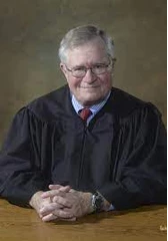


The Massachusetts Noncompetition Agreement Act applies to employee noncompetition agreements signed on or after October 1, 2018. The Act contains significant ambiguities that will have to be resolved by judges construing the Act in specific cases. In what may be the first case decided under the Act, a judge on the United States District Court for the District of Massachusetts, Judge Timothy Hillman, recently issued a decision in a case that may resolve a major ambiguity in the Act and effectively invalidate a significant number of noncompetition agreements subject to Massachusetts law that were signed on or after October 1, 2018.
On July 15, 2021, Judge Hillman decided several motions in the case, KPM Analytics North America Corporation v. Blue Sun Scientific, LLC. In the case, the plaintiff, KPM Analytics North America Corporation (“the plaintiff” or “KPM”) sued its competitor, Blue Sun Scientific, LLC (“Blue Sun”) and several Blue Sun employees who formerly worked for KPM. KPM alleged that one of the individual defendants, Philip Ossowski, a former employee of KPM, breached an employee noncompetition agreement that he signed in March 2019. There was no dispute that Mr. Ossowski’s noncompetition agreement with KPM was governed by the Massachusetts Noncompetition Agreement Act.

Mr. Ossowski moved to dismiss KPM’s claim that he breached his noncompetition agreement by working for Blue Sun less than a year after his employment with KPM terminated, arguing that the noncompetition agreement was unenforceable under the Act. In a short section of the decision, Judge Hillman agreed with Mr. Ossowski that his noncompetition agreement was unenforceable under the Massachusetts Noncompetition Agreement Act. The entirety of Judge Hillman’s decision as to the invalidity or unenforceability of Mr. Ossowski’s noncompetition agreement is as follows:
As KPM appeared to concede at the hearing, Ossowski's Agreement violates the Massachusetts Noncompetition Agreement Act, M. G. L. c. 149, § 24L. The Act sets out eight requirements for a noncompetition agreement to be legally binding: Ossowski's Agreement violates the first and seventh conditions. The first requirement mandates that the agreement "expressly state that the employee has the right to consult with counsel prior to signing." Id. § 24L(b)(i). The seventh requirement mandates that the agreement be supported by "a garden leave clause or other mutually-agreed upon consideration between the employer and the employee." Id. § 24L(b)(vii). Ossowski's agreement does not expressly state that Mr. Ossowski has the right to consult with counsel prior to signing, and it does not contain a garden leave clause or another mutually agreed upon form of consideration. Id.
Ossowski's motion to dismiss Count VI is granted.
Thus, the Court found that Mr. Ossowski’s noncompetition agreement was unenforceable in two respects. First, the agreement did not “expressly state that the employee has the right to consult with counsel prior to signing.” The Act specifically provides that to be valid and enforceable, an employee noncompetition agreement must contain such a statement. § 24L(b)(i). The Court’s holding on the point is unassailable.
Second, the Court found that Mr. Ossowski’s noncompetition agreement did not satisfy that section of the Act that provides that to be valid and enforceable a “noncompetition agreement shall be supported by a garden leave clause or other mutually-agreed upon consideration between the employer and the employee, provided that such consideration is specified in the noncompetition agreement.” § 24L(b)(vii). The agreement did not contain a garden leave clause, so for the noncompetition agreement to be enforceable under the Act, KPM had to provide Mr. Ossowski with “other mutually-agreed upon consideration . . . specified in the noncompetition agreement” in exchange for his promise not to compete with KPM. While the Court did not mention this, Mr. Ossowski’s noncompetition agreement stated that the consideration KPM provided him in exchange for his covenant not to compete was “employment by the Company,” i.e., the job. Prior to the Act, employment was sufficient consideration for an employee noncompetition agreement, including am agreement signed in connection with the commencement of employment. Whether the Act changed the law in that regard was less than clear. As I have written previously, the Act is ambiguous as to whether employment can constitute “other mutually-agreed upon consideration between the employer and the employee.” Without explicitly saying as such, the Court in this case nonetheless found that employment is not “other mutually-agreed upon consideration between the employer and the employee” that supports an employee noncompetition agreement. Under this decision, employers will have to provide new employees with something more than a job if they want those employees to enter into enforceable noncompetition agreements.
In the last few years, I have reviewed dozens of employee noncompetition agreements subject to the Act wherein the only consideration the employer provided to the employee in exchange for the promise not to compete was the job. Under Judge Hillman’s ruling, those employee noncompetition agreements are invalid and unenforceable. Obviously, we cannot be certain how many employee noncompetition agreements subject to the Act are now unenforceable under this decision, but it is reasonable to suspect it is several thousand.
Of course, it remains possible that another judge might disagree with Judge Hillman’s interpretation of the Act, but I suspect not.
The dilemma for employers whose employee noncompetition agreements are unenforceable based on Judge Hillman’s decision is a very tricky one. If the employers do not persuade their existing employees to amend their noncompetition agreements to include “a garden leave clause or other mutually-agreed upon consideration,” the agreements will not be enforceable. However, the cost of including a “a garden leave clause or other mutually-agreed upon consideration” is hefty and, arguably, not worth that expense, particularly where non-disclosure and non-solicitation agreements are much easier to enforce and not subject to the Act. Moreover, amending the noncompetition agreements will make them subject to another section of the Act, which provides that “[if] the agreement is entered into after commencement of employment but not in connection with the separation from employment, it must be supported by fair and reasonable consideration independent from the continuation of employment.” § 24L(b)(ii). The Act does not define “fair and reasonable consideration,” but it clearly requires more consideration than what is necessary to satisfy “a garden leave clause or other mutually-agreed upon consideration” and may even require that the employer pay the employee at the time the employee signs the agreement the equivalent of the “fair market value” of the noncompete to the employer.
Judge Hillman wrote only a few sentences about the Massachusetts Noncompetition Agreement Act. However, his interpretation of the Act not only resolved one of the multiple ambiguities in the Act but, more importantly, effectively fulfilled the promise of the Act to significantly limit the enforceability, and even the use, of employee noncompetition agreements in the Commonwealth.
If you need advice or representation concerning a noncompetition agreement, please contact me to see how I can help. Lawson & Weitzen, LLP is a full-service law firm that regularly is involved in employment law matters.